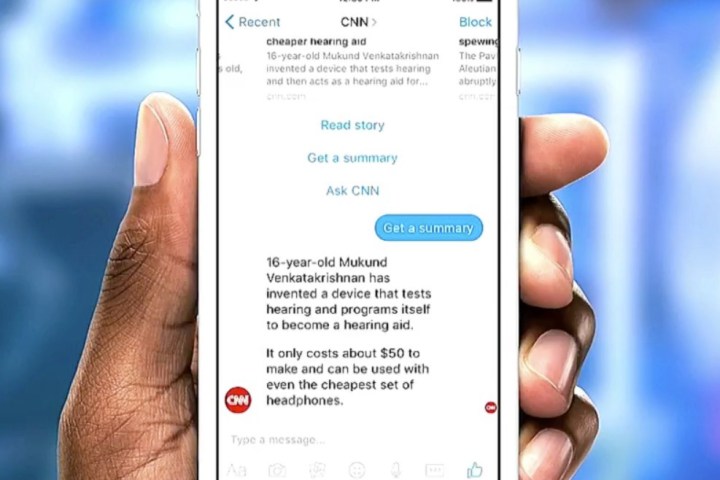
Developers, always hungry for more attention from Facebook’s dedicated user base, have been quick to jump onto the Messenger bot bandwagon. There are bots you can ask about the weather or about today’s headlines, and bots that you can actually buy things from. But The Verge, and other sites, are asking a question: Is anyone actually chatting with these things?
Facebook, in part to answer these challenges, pointed out a few success stories. The Disney film Zootopia, for example, launched a bot that allowed users to chat with protagonist Judy Hopps. Millions of messages were sent, and the average user spent several minutes in conversation with the computer-animated rabbit.
The NBA’s official bot, which shows highlights on demand when users ask for them, also drove quite a bit of engagement, according to Facebook. There were over 350,000 interactions during the NBA finals and draft. Those numbers are nothing compared to the number of Tweets and Facebook posts sent during those same events, but it’s a fascinating test case nonetheless.
Messenger’s bot platform is just three months old, and it’s likely that the killer use case for this technology hasn’t been invented yet. Maybe there is a use case for IM bots that is so mind-bogglingly useful that it will cause users everywhere to start chatting with them regularly.
And certainly brands could benefit by jumping into spaces previously occupied by chat between friends and family. The timeline has already been invaded with quite a bit of success, so why not colonize the chat space?
But to do that, bots are going to have to be really, really compelling. Asking a bot about the weather needs to be easier than opening up your weather app, and asking about the news needs to work consistently enough that people bother to chat instead of search. It will be interesting to see what sort of solutions developers come up with.


